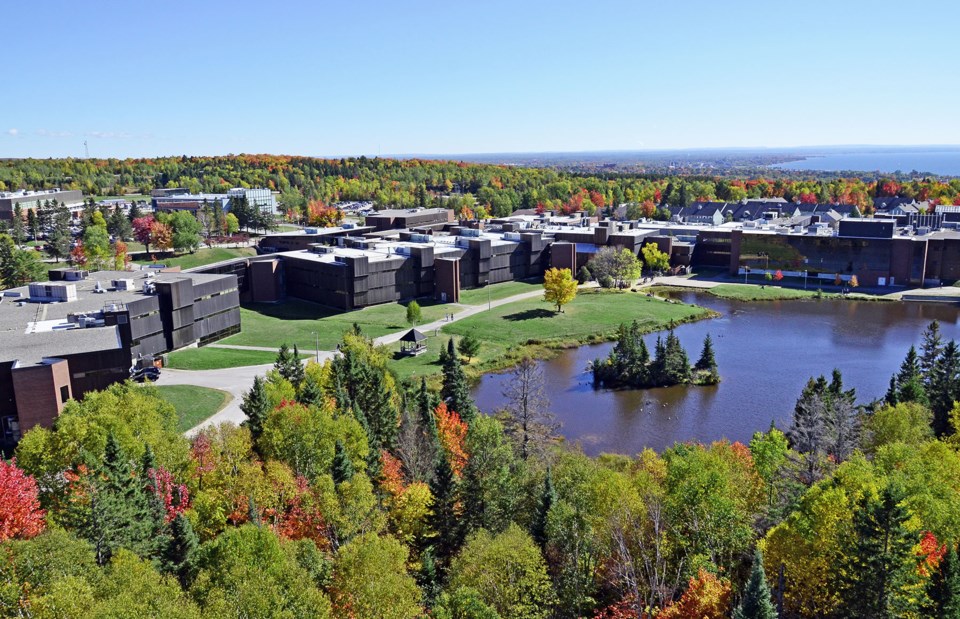Eleven small, rural, and northern colleges throughout Ontario have banded together to face economic impacts created by recent changes to U.S.–Canada trade dynamics caused by the tariff situation.
The Ontario Regional Economic Workforce and Innovation Network (OREWIN) plans to rapidly develop new programming and adapt existing programs to meet the specific regional needs of businesses in core industries that drive the province’s economy, such as forestry, agriculture, mining, and renewable energy.
“We’re here to help industries adjust to their new reality,” George Burton, OREWIN’s chair and president of Canadore College, told Northern Ontario Business.
“As industry adjusts to the new market, they’ll require new capacities to help them. We want to be a key component in growing our industries and finding new markets for products and services,” said Burton.
OREWIN was in development prior to the tariff situation, but efforts to finalize the coalition were accelerated to offer a direct and immediate response to uncertainty created by the tariffs.
“I don’t think anyone saw how quickly the tariffs would change the landscape,” said Burton.
Response to the external threat of the tariffs will require “all hands on deck,” he added.
“Collectively, we came to the realization that there’s more strength if we form a coalition so we can speak with a single voice on behalf of the communities and industries we serve.”
OREWIN views each of its member colleges as different innovation centres with specific niches capable of responding to needs within their individual regions.
Member colleges include Canadore College, Cambrian College, St. Lawrence College, Collège La Cité, Fleming College, Loyalist College, Northern College, Confederation College, Lambton College, Collège Boréal, and Sault College.
In addition to tailoring programming, each individual college is currently assessing how it can leverage in-house technology to meet the needs of tomorrow.
“We have a very good idea of the expertise we have inside our individual institutions,” said Burton.
The OREWIN network is self-funded, but the colleges plan to partner on the $705 million investment to expand STEM and skilled trades programs at post-secondary institutions promised earlier this year by the Ontario Progressive Conservative Party’s “Protect Ontario Account.” The initiative was implemented to address the threat of U.S. tariffs.
Assessing industry needs to develop new and changing STEM programming will be a big focus for the coalition, said Burton.
Additionally, OREWIN colleges will play a key role in training a skilled workforce for the province’s promised $22-billion investment in new infrastructure like additional housing, hospitals, schools, and highway construction.
“We’re the key providers of the workforce that will help execute the investments the province is going to make,” said Burton.
OREWIN colleges will also train over one million skilled trades workers with aid from the province’s $2.5-billion Skills Development Fund, which will enhance local apprenticeships. The Skills Development Fund includes a Learn and Earn initiative that helps workers earn a paycheck while receiving in-class and on-the-job training.
“A large part of what we do is retrain the workforce,” said Burton. “With every change to trade, conditions change. Some sectors get stronger and others weaker, and people look to change occupations. Should people be laid off, we’re here to help respond to that with new training for new careers.”
To determine strategies for meeting the needs of businesses and industries, OREWIN colleges will continue to support the Ontario Labour Market Survey to ensure local and regional labour markets are represented.
“We make sure local industries’ current labour needs are captured and reflected in the Labour Market Surveys,” said Burton. “Surveys are only as good as the info they receive. We want to make sure that our region is represented.”
Future plans to refine OREWIN’s agenda will be determined during upcoming talks and tours with members across the region to discuss the challenges they face.
“I think we’ll have a better sense of what it’s going to mean by the early fall at the latest,” Burton said. “Today, we’re bouncing like a ping pong ball because things are changing daily. We’re going minute by minute.”
Burton hopes, ultimately, that the tariff situation will prove an opportunity to strengthen the colleges’ role in regional economies.
“We’re pleased we’re all coming to the table with a collective agenda and working with all levels of government to ensure we’re working stronger than when this mess started,” Burton said.
“It’s a very serious situation, but I do believe we have the capacity to adjust and come out stronger at the end of the day.”




